Honorary papers
Programme (PDF, 797 Kb)
Hervé Moulin will present a honorary lecture on “Fair Division in the age of Internet”
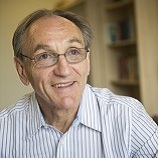
ABSTRACT
Seven decades of research in economics, mathematics, and computer science identify provably and robustly fair solutions to share, for instance: the rent between the flatmates, the cost of a taxi ride, household chores, the family heirlooms, shifts between interchangeable workers, courses with limited capacity between students, memory space and computing resources in peer-to-peer networks.
The theoretical challenge is to choose between several interpretations of fairness when they are not mutually compatible. Current efforts to make the corresponding solutions available for free on the internet will make the users of these websites the ultimate arbiters of conflicting proposals.
Daniel Treisman will present a honorary lecture on “What makes governments popular?”
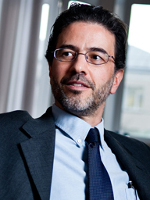
ABSTRACT
Why are some governments popular with their citizens while others get low ratings? International surveys show enormous variation. In Bhutan in 2014, for example, 89 percent of respondents said their national authorities were doing a good job. In Bosnia and Herzegovina that year, only 5 percent said the same. Ratings vary not just across countries but also over time. Between 2008 and 2014, approval of top leaders fell by 42 percentage points in Armenia, but rose by 40 points in Zimbabwe.
Understanding the causes of such variation is important for several reasons. First, it offers insight into the mechanisms of democratic responsiveness. To hold their governments accountable, citizens must be able to assess their performance. If citizens’ evaluations track actual government effectiveness, then elections may both motivate incumbents to work hard and select for competence. If, by contrast, citizens are swayed by superficial images or state propaganda, elections will not promote responsive government.
More
Second, leaders’ ratings provide hints about the future. This is true in both democracies and authoritarian states. In democracies, the incumbent’s poll numbers suggest the odds of reelection. The ratings-obsessed democratic politician has become a cliché. Such officials may change their policies when falling in the polls. Low approval may also prompt challenges to the leader from within his own party. In systems where election dates are discretionary, popular incumbents may call an early vote hoping to cash in their advantage.
The leader’s ratings might seem less important in authoritarian and hybrid regimes, which are usually thought to depend on repression rather than on consent. In fact, in some dictatorships ratings matter even more than in democracies. It is not always true that force can compensate for low approval—sometimes, low approval makes it hard to use force. To do so, the dictator must rely on his police and security service. But officers may hesitate to follow orders if they think the regime about to fall. As Arendt (1969) put it: “Where commands are no longer obeyed, the means of violence are of no use. Hence obedience is not determined by commands but by opinion, and, of course, by the number of those who share it.”
The belief that a leader is loved can silence potential critics, creating a self-fulfilling faith in the regime’s stability. Conversely, low ratings may suggest vulnerability, encouraging opportunistic attacks and elite defections. In postcommunist Russia, presidents’ support among regional governors and parliamentary factions waxed and waned with their approval numbers (Treisman 2011). And the threat may be more immediate in systems where leaders are removed from office by coup or revolution rather than electoral defeat. An unpopular leader in a democracy must worry about replacement at the next election; an unpopular dictator needs to worry about it every day.
For these reasons, authoritarian leaders sometimes seem more obsessed with polls than their democratic counterparts. Some invest heavily in their own surveys. General Pinochet hired Gallup in the late 1970s to question the Chilean masses (Singer and Scotto 2004, p.478). President Salinas of Mexico set up three separate polling agencies to serve the ruling PRI party, the president’s office, and the government newspaper, while also appointing fulltime pollsters to his staff (Moreno 1996, p.152). Poland’s Communist leaders in the 1980s, reluctant to rely on secret police reports, commissioned multiple surveys to test the effectiveness of martial law (Nalepa and Pop-Eleches 2014).
Besides providing hints of future leader or regime change, approval ratings affect the incumbent’s ability to achieve his goals. High poll numbers constitute a form of “political capital” that can be “spent” on enacting policies. In the US, popular presidents can better determine the agenda and enlist Congress’s backing (Canes-Wrone and de Marchi 2002; Barrett and Eshbaugh-Soha 2007). A similar logic applies in some authoritarian and hybrid systems. Lacking an organized political party, Peru’s President Fujimori “used public opinion polls to fight his opponents in Congress and gain political momentum” (Carrión 2006, p.128).
This paper is, we believe, the first systematic, global, comparative study of political approval. We examine a panel of country averages from up to 128 countries, spanning all continents, over the years 2006-2014. Our source, the Gallup World Poll, uses a standard question to assess government approval and includes a variety of other useful measures of opinion and attitudes. The availability of data for up to 9 years makes it possible to control for fixed country characteristics and explore the dynamics of approval in a global setting. Although we cannot make strong causal claims, the broad coverage and panel structure allow for the most comprehensive and detailed picture of this phenomenon to date.
We explore, among other questions: the impact of economic conditions, wars, and other plausible determinants of leader popularity; whether patterns of government approval differ in democracies and non-democracies; and the role of propaganda, censorship, and political repression on the expression of approval and disapproval.
Victor M. Polterovich will present a honorary lecture on “Evolution of competition, authority, and collaboration”
ABSTRACT
The hypothesis is discussed that the evolution of modern developed societies leads to a decrease in significance of institutions of authority and competition mechanisms; instead, the role of positive (not directed against third parties) collaboration increases. The grounds of this process are technical progress, and most importantly - cultural changes: the spread of tolerance, cosmopolitanism and altruism, increasing the radius of trust, internalization of honesty norms and, therefore mitigation of free-riding problem. As a consequence, collectivism and individualism in their extreme forms are replaced by the culture of constructive collaboration and compromise. Thereby the failures of the state and the market as well as parliamentary democracy are gradually being overcome.
Read more
To ground the basic hypothesis, I consider three areas where recently the competition or the authority institutions dominated - the spheres of international relations as well as internal political and economic interactions. The evolution of legislation on bankruptcy and antitrust laws are discussed as well as coopetition effects, changes in the political systems in developed countries (consensus democracy by Arend Lijphart, the role of parliamentary committees), the emergence of international institutions, the role of civil society. It is shown that in the long-term evolution, the contradictions of the competitive and the state coordination mechanisms gradually softened, but not only and not so much due to their rational combination, but because of the increasing role of collaboration.
The described transformation increases the effectiveness of institutions: the scope of coercion, inevitably generated by the state institutions and also by the institutions of unrestricted competition, is being reduced, and targets of interactions are being achieved at lower costs. It concerns the reduction not just material, but also socio-psychological costs due to expanding possibilities of collaboration in the framework of moral norms (including the golden rule), that are widely recognized in modern societies.
Timur Kuran will present a honorary lecture on “Trust, Cooperation, and Development: Historical Roots”
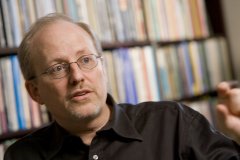
ABSTRACT
There are regions, countries, even continents where, for decades, efforts to galvanize development have resulted mostly in disappointment. Such places are unresponsive to measures that stimulate production and trade in other places. In some cases, the basic reason lies in lack of resources and/or inhospitable climate. But in a many other cases, the main source of the problem is that complementary factors are missing. Commonly the missing factors include adequate interpersonal trust. In Italy, for instance, the Mezzogiorno remains chronically underdeveloped because of low interpersonal trust; this condition deters private investment and causes outflows of human capital. In India, cities without a history of commercial prominence are more likely to experience intercommunal strife, which makes them unattrative to investment today.
Read more
In the Middle East, the Islamic court system was openly biased in favor of Muslims, members of the dominant religion. Judicial biases reduced Muslims’ incentives to comply with contracts, making them relatively untrustworthy as borrowers, business partners, and sellers. In the Middle East, even where essentially secular court systems replaced the Islamic system several generations ago, interpersonal trust remains low. This is among the deep reasons why its development record has been disapppointing in spite of abundant natural resources.
Cristian Aedo will present a honorary lecture on “Excellence and equity in education: lessons learned in Europe and central Asia”
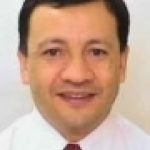
ABSTRACT
The purpose of this presentation is to illustrate emerging messages and lessons learned from the World Bank engagement with several countries in the region in the context of analysis of PISA data for policy-making purposes.
The presentation will first describe the recent trends on skill acquisition of youth, and the remaining challenges of moving from diplomas to skills, especially those mostly demanded in the knowledge economy.
More
Then the presentation will argue why is it particularly crucial to invest in education in a context of job automation, growth stagnation, demographic shifts and productivity challenges. Then, it will move to the inequality problems derived from lack of opportunities in many countries in the region and how this leads to segregated and fragmented systems. It will elaborate on two country examples to better describe such challenges: Hungary and Poland. Finally, the presentation will conclude on a series of policy directions that have been implemented in many of those countries which are crucial foundations to achieve an “equity and excellence” combination.
Ali Farazmand will present a honorary lecture on “Advancing knowledge and expanding horizons in the 21st century: what the global encyclopedia of public administration, public policy, and governance, as well as IJPA and public organization review can do”
ABSTRACT
Twenty-first century is the century of globalization and global knowledge explosion. Globalization has many meanings and interpretations with different implications and consequences, good, bad, and ugly. It has had profound implications with serious challenges for developing and developed nations, their governance and public administration systems. Knowledge is power and power is essential to governance and public administration. Advancing knowledge is the key to building capacity and meeting the challenges of globalization; it expands the horizons of possibilities and opportunities worldwide.
More
This presentation addresses the world’s largest Global Encyclopedia of Public Administration, Public Policy, and Governance, with the initial 2000 entries (short/2000-3000 words; medium/3000-5000words, and few long/5000-10,000 words) to be published Online in print by Springer in 2017-2020, and with the ultimate goal of 5000 entries by 2022-2025, to continue with new editions. The Encyclopedia covers over 60 sections, subsections, and all geographical areas and countries of the world with over 100 section editors and co-editors. As Editor-in-Chief of the Global Encyclopedia and Founding Editor-in-Chief of Public Organization Review: a Global Journal (POR:GJ), Professor Farazmand cordially invites new section editors for the growing sections and areas of the Encyclopedia and authors for a large of number new entry topics to expand this truly global source of advancing knowledge and expanding horizons into the broad areas of public administration, public policy, and governance. While the Global Encyclopedia publishes short, medium, and long entry essays, Public Organization Review: a Global Journal (POR:GJ) publishes peer reviewed high quality standard articles. Springer is the publisher for both publications. Also, as Editor-in-Chief, Professor Farazmand seeks high quality manuscripts for the refereed International Journal of Public Administration (IJPA), which has begun a new life as of 2016 with a newly streamlined and highly engaged and rigorous editorial board, a focus on high quality manuscripts & publication, a tightened acceptance rate, an IFirst publication Online of newly accepted manuscripts, and a new tradition of annual Board Meeting with refreshments/reception at the Annual Conferences of ASPA (American Society for Public Administration), starting this year in Seattle, Washington, on March 19, 2016, in St. Helen Room, 12:30-1;45 PM—please join us if planning to attend the conference.
Michael J. Feuer will present a honorary lecture on “From science to policy: the us evidence movement and lessons for inequality research”
ABSTRACT
Evidence of rising economic inequality in the United States is abundant and worrisome. During the past 40 years the income of families in the 99th percentile of the distribution increased by 90 percent, while families in the 20th percentile experienced only a 7 percent gain (Duncan and Murnane, 2011, p. 3). The effects on educational opportunity, especially for disadvantaged youth, are staggering.
More
Similar trends are discernible in other developed countries. This paper considers how research on these issues can translate to policy options. What lessons from the American experience with making social science “useful” might be helpful to other countries pursuing the challenges of inequality and educational opportunity?
Steven Fish will present a honorary lecture on “Political and civil society in Russia in comparative perspective”
ABSTRACT
Why are political parties, civil society organizations, and social movements weakly developed in Russia? Since the Russian polity began opening in the late 1980s, independent societal associations have emerged.
More
Those groups are real; they don’t resemble their counterparts in the West, but are not for that reason less genuine. Still, unlike in many other countries that have undergone political opening in recent decades, independent organizational life has never flourished in Russia. In the absence of a strong party system, civil society, and social movements, politics in Russia remains largely an elite matter. Why is Russian society relatively inarticulate and underdeveloped?
Scott Frey will present a honorary lecture on “Infant mortality in the world-system: the cross-national evidence”
ABSTRACT
The plight of children improved dramatically over the 20th Century. Infant and child mortality, for instance, declined globally over the past six decades and infant deaths have declined across countries occupying very different positions in the world-system (World Bank, 2015), but considerable cross-national variation in infant mortality remains at the beginning of the 21st Century (Central Intelligence Agency, 2013) and child mortality reduction goals under the UN’s 2015 Millennium Development Goals will not be met (United Nations, 2014; World Bank, 2015). Consider the fact that there was a 100-fold variation in the infant mortality rate across countries in the world-system in 2013: Monaco had a rate of 1.81 infant deaths per live 1,000 births, while Afghanistan had a rate of 187.5 infant deaths per 1.000 live births (Central Intelligence Agency, 2013).
More
Why does infant mortality continue to vary so widely across countries of the world system? Various explanations have been offered, but little attention has focused on examining the validity of these explanations simultaneously with recent data. This gap in the literature was addressed in a cross-sectional analysis of the determinants of infant mortality in 2010 for a sample of 144 countries. The empirical validity of four macrosocial change theories was examined: gender stratification theory, modernization theory, dependency/world-systems theory, and developmental state theory. Strong support was found for gender stratification theory: female education had a negative effect on infant mortality. Support was also found for modernization theory: as industrialization increased, the infant mortality rate decreased. No support was found for developmental state theory (the level of state intervention in the economy) and dependency/world-system theory (position of the country in relation to the core countries). Several control variables were examined (population growth and democracy, among other variables), but only Sub-Saharan Africa status proved to be an important predictor: Sub-Saharan African countries had a significantly higher infant mortality rate than their non Sub-Saharan African counterparts. Increasing gender equality seems to be the most rational means for reducing infant mortality. Implications of the results and suggestions for future research are discussed.
Lucas Gortazar will present a honorary lecture on “Skills and competencies in the Russian Federation: a snapshot analysis of Pisa 2012”
ABSTRACT
The purpose of this presentation is to provide a brief snapshot the state of secondary education and skills in the Russian Federation through the lens of PISA 2012 analysis.
More
The snapshot will present (i) a brief description of the recent trends of the system as a whole; (ii) a description of efficiency and equity of the system with different socioeconomic groups; (iii) some policy levers both at the systemic and school levels and how do these compare with other international examples; (iv) a detailed description of the type of skills acquired in the Russian Federation (through the PISA sub-scales) and how do these related to teaching practices and new curriculum approaches. The presentation will conclude with some potential policy directions following the analysis.
Andy Green will present a honorary lecture on “Education, skills and ‘pre-distributive’ social policy”
ABSTRACT
Education and training are the key determinants of future life chances for individuals and a primary societal mechanism for the reproduction of social stratification across generations. The form of the education and training system in a country will substantially determine the way skills are distributed throughout society and the levels of inter-generational social mobility.
More
The distribution of skills is a significant factor in determining the distribution of adult earnings and therefore has an important bearing on income inequality. Hence the current policy discussions about how ‘pre-distributive’ social policies in education and other spheres can be used to reduce inequalities in wages and incomes. This paper will use the OECD PISA and Survey of Adult Skills data to examine the variation across countries in the distribution of the literacy and numeracy skills of young people and adults, how these change over the life course, and how the characteristics of education and training systems affect this.
Ronald F. Inglehart will present a honorary lecture on “Cultural change: reshaping human motivations and society, 1896 - 2014”
ABSTRACT
Rising levels of economic and physical security are reshaping human values and motivations, and thereby transforming societies. Basic values tend to be instilled during one’s pre-adult years and persist in later life. But if a society’s younger birth cohorts grow up under fundamentally different conditions from those shaping older cohorts, the society’s prevailing values can change, generally at the glacial pace of intergenerational population replacement.
More
Economic and physical insecurity are conducive to xenophobia, strong in-group solidarity, authoritarian politics and conformism to traditional cultural norms. Conversely, secure conditions lead to tolerance of outgroups, openness to new ideas and more egalitarian social norms. Consequently, the rapid economic growth and expanding welfare states experienced by developed societies after World War II brought an intergenerational shift from emphasizing economic and physical security above all, toward greater emphasis on free choice, environmental protection, gender equality and tolerance of gays. This contributed to major societal changes such as the legalization of same-sex marriage and a sharp increase in the number of democracies around 1990. Subsequent economic stagnation, rising inequality and high unemployment have retarded this value shift, encouraging growing xenophobia and authoritarianism. Nevertheless, acceptance of gender equality and homosexuality have become socially desirable attitudes in secure societies and continue to spread rapidly.
Ichiro Iwasaki will present a honorary lecture on “What we learnt from the Russian experience during the global financial crisis: a corporate governance perspective ”
ABSTRACT
The global financial crisis of 2008 struck not only developed economies but also Russia, which had been promoting economic integration with the world economy in pursuit of the shift from a planned system to a market economy. This experience provides an important opportunity to study how Russian corporations are stalwart against an external macroeconomic shock and the role and evolution of corporate governance system in a crisis period. In this presentation, I will address to two issues from this viewpoint:
More
First, how many Russian firms were forced to exit from the market by the global financial crisis and how did corporate governance quality affect firm survival during the period? Second, how did surviving firms evolve their governance system in the crisis? My study relies on results of an enterprise questionnaire survey conducted in 2005 in cooperation between Higher School of Economics (Moscow) and Hitotsubashi University (Tokyo) and its follow-up survey in late 2009.
I will report that the vast majority of exiting firms were forced to discontinue operation during the two years of 2008 and 2009, and the quality of the corporate governance system observed in 2005 had a statistically robust and positive correlation with the company’s subsequent survival probability. Furthermore, I will mention that my empirical analysis revealed that, in the Russian industrial sector, the quality of corporate governance has been improved through the crisis. I will also argue that, corresponding to the alignment hypothesis, in firms that decisively reformed their management and supervisory bodies in response to the 2008 financial shock, the total number of worker representative directors significantly declined, as did their proportion to all board members. On the other hand, I will also report that, in firms that substantially reorganized their audit system to cope with the crisis, the independence of the audit system was undermined remarkably, corresponding to the expropriation hypothesis.
Robert Kramer will present a honorary lecture on “Workshop on transformative action learning”
ABSTRACT
This workshop is for anyone who wants to explore how to implement a form of problem solving, leadership development and knowledge management called “transformative action learning.”
Transformative action learning is a tool that has an extraordinary capacity to help managers get powerful results. Transformative action learning promotes team building, leadership, creativity, group emotional intelligence, practical solutions and organizational learning.
More
Transformative action learning involves real people resolving and taking action on real problems in real time and learning while doing so. Transformative action learning makes inquiry and reflection central to the group as members learn with and from each other while attempting to change the organization.
In transformative action learning, group members question their own mindsets as well as the basic taken-for-granted assumptions of the organizational culture. The change implemented in the organization is termed “action” and the change in the mindset, assumptions and beliefs of group members is termed “transformative learning.”
Transformative action learning has been widely adopted by Fortune 100 companies, the US Government, and the European Commission as the preferred method for solving urgent problems, building teams, developing leaders and changing organizational culture.
I will demonstrate how transformative action learning can turn urgent problems or challenges into actions, new ideas and creative thinking.
Henry M. Levin will present a honorary lecture on “Investing in the higher education of the disadvantaged: a benefit-cost approach”
ABSTRACT
Students from disadvantaged families face obstacles in reaching and completing higher education. Even when disadvantaged students are able to enter higher education in the U.S., they are unlikely to complete a degree. Most such students seek a two year, associate degree from a local community college with the hope of transferring to a four year university to complete the BA degree.
More
However, less than one-fifth of such students succeed in completing the two year associate degree. This presentation reviews the costs and benefits of a public investment to increase the community college completion rate of the disadvantaged. As an investment there are public benefits from degree completion in the form of increased tax revenues of graduates and reduced public costs of crime, health, and public assistance. The economic benefits of this public investment are found to be far greater than their costs, contributing to greater equity and social efficiency.
Richard Murnane will present a honorary lecture on “Inequality in educational outcomes in the united states: trends, mechanisms, and data sources”
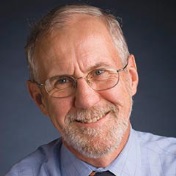
ABSTRACT
Increases in family income inequality in the United States over the last 40 years have translated into widening gaps in educational achievement and attainments between children from low- and high-income families.
More
The talk has three goals related to these trends. The first is to describe and interpret the evidence on trends in inequality in educational outcomes based on family income. The second is to describe the evidence on the mechanisms through which increases in family income inequality resulted in increases in inequality of educational outcomes. The third is to describe the data sources that have been important in documenting trends in educational outcomes and the explanations for these trends, and to assess the strengths and limitations of these data sources.
Gérard Roland will present a honorary lecture on “The evolution of post-communist economic systems”
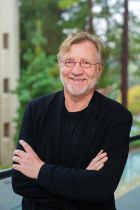
ABSTRACT
In this lecture, I will propose a new conceptualization of transition processes in Eastern Europe versus China.
I argue that with the perspective of time, transition outcomes in Central and Eastern Europe better understood by the dynamics of state erosion started under communism rather than by particular transition policy choices. Post-communist states, while being autocratic or imperfectly democratic, are very different from the communist monopoly of power that existed under the socialist system. They have become a turf war for kleptocratic networks for the purpose of corrupt enrichment. Reforming post-communist kleptocratic states to establish high quality institutions is a new and very different challenge from the transition away from the communist state and the socialist economy.
More
The case of China is very different. China made a major institutional innovation in world history: establish a successful market economy under absolute communist rule, with the goal of consolidating the power of the Chinese communist party. The Chinese system faces specific survival challenges in the future (ideological vacuum, corruption, external environment), that I will review, but there are few hopes of major political reform in the short and medium run.
Eric Uslaner will present a honorary lecture on “Trust and corruption perceptions in Russia”
ABSTRACT
Russia is widely regarded as a society in which there is low interpersonal trust and high levels of corruption. Using a survey of 2003 Russians conducted by the Levada Analytical Center* for a grant from the Research Council of Norway (NORRUSS) to the research foundation Fafo, I examine trust and corruption perceptions in Russia. For generalized trust, neither inequality nor changes in inequality were significant predictors, althouth having more than adquate living standards mattered a lot.
More
Cultural influences were also important: Religious people are less trusting while people who have lived abroad are more trusting. Trust in government largely reflects attitudes toward President Putin, but also how well laws are enforced and the level of corruption. Perceptions that corruption has increased since the Soviet era reflect generalized trust, whether it is acceptable to make “gift” payments, how adequate people see their income, and the level of inequality in their oblast. Also people who identify more as Europeans than as Russians are more likely to see increased levels of corruption.
Stanley Wasserman will present a honorary lecture on “Network research in Russia: progress and prospects”

ABSTRACT
Networks are everywhere. They are important, because they enhance existing theoretical knowledge in any field by providing tools of analysis to relational data – that is, market functioning, organizational problem-solving, and changes that take place on the societal level. This is because networks allow looking beyond the individual attributes of organizational, market, and societal players by building complex webs of relationships and information flow between them. The field of networks is truly multidisciplinary, as many social fields are interconnected and should be studied in parallel using the same instruments.
More
The purpose of this presentation is to acquaint the broader community of HSE and visiting academics with network research done on Russian data at NRU HSE International Laboratory for Applied Network Research. The team of approximately 30 young scientists from a diverse set of fields have been working for the past two years on a variety of problems, united by common methodology of network science. This presentation will provide a broad overview of research done by the lab, some peculiarities inherent to Russian data collection, encountered by our team, and insights from analysis that appears to be unique for the Russian sets of data. We will also address currently unresolved issues and outline directions for future research.
Christian Welzel will present a honorary lecture on “Democracy betrayed: why people view an undemocratic situation as democratic”
ABSTRACT
Despite the fact that people in most countries of the world say that they prefer democracy, in some countries many of these alleged supporters define democracy as its opposite: autocracy. Usually, this pattern is typical of authoritarian states, which suggests that these regimes are legitimate because overt democrats consider them as democratic, despite the fact that they are not. These insights shed another light on the recent debate about the merits of formative and reflective measurement.
More
Had we followed a reflective measurement approach, we simply had to conclude that notions of democracy are not comparable across countries and that's where we end. All the insights of this analysis would have been left in the dark because only a formative approach to concept construction can unearth them.
Honorary lecture by Prof. Wesley J. Johnston (Georgia State University) "The Internet of Things and Its Effect on Big Data and Business Analytics"
ABSTRACT
New digital business ecosystems (Nachira, et al 2007) are emerging mirroring business networks and information flows. At the base of these ecosystems are smart sensors that collect, receive and send real-time information through the Internet into a platform that underpins B2B information requirements and services. This collective of sensors – the ‘Internet of Things’ (IOT) – is expanding at an explosive Cambrian level with estimates connecting to the Internet varying wildly from Cisco’s official estimate of 1 billion at the end of 2012 to over 27 billion by 2020 (Varley 2013), compared to TSensors Summit (2013), estimates of over 10 billion sensors in 2013, growing to over 1 trillion sensors to be connected to the Internet by 2022! Sensors may be found in almost everything by 2020 and will generating huge streams of data – Big Data. Frameworks for defining and classifying big data are emerging including IBM’s (2014) four V’s framework (volume, variety, velocity and veracity). Marr (2015) added a 5th V to the IBM framework – value.
More
A B2B digital business ecosystem is outlined including real business value creation ecosystem and digital ecosystem with IOT, Big Data, and information services platform, layers – and interactions by B2B actors (human and increasingly becoming digital) to produce products, services, ideas and activities. Data science is emerging focusing on capture, curation, analysis and use of big data streams. Datafication includes big data and includes value creation (Norman, 2001; Lycett, 2013). The IOT underpinning B2B services was outlined by Sood & Pattinson (2013) and Big Data for B2B value creation by Johnston, Nickell, Liu & Gould (2014). Discussion on the emerging area of marketing data science (in a B2B context), B2B digital business ecosystems and how far they may go in terms of imitation or taking over of real value creation system is presented at the end of the paper.
* Решением Минюста РФ Левада-Центр включён в реестр некоммерческих организаций, выполняющих функции иностранного агента.
.jpg)
.jpg)
.jpg)
.jpg)
.png)
.jpg)
.jpg)
.jpg)
.jpg)
.jpg)
.gif)
.png)
.jpg)